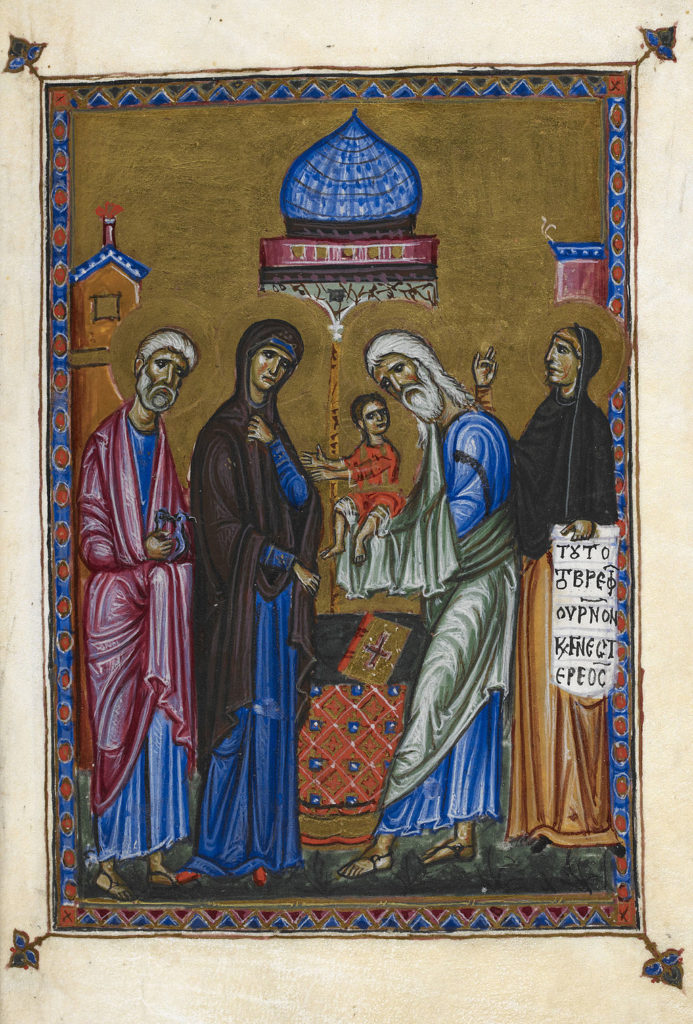In the story of Jesus’ Presentation at the Temple, and the purification of his blessed mother, Luke tells of two words that Simeon utters. The first is a hymn of praise to God that Simeon should have seen the coming of his Christ. The second addresses the holy family, blessing them, but adding some words of caution for his mother, that this epiphany would not be without trouble, and that its sword would pierce her own heart.
Then we are introduced to Anna. She has spent several decades, the majority of her life, in the Temple as a widow devoted to worship, fasting, and prayer. When she sees the family and their child, she two breaks into praises, and she, too, has something to say about what this means, the coming of the Messiah, the birth of the Christ, and his appearance in the Temple. She tells all who will listen – but her words, unlike Simeon’s, are not recorded.
Simeon’s song, the Nunc Dimittis, crops up regularly in our liturgies, especially during Evening Prayer. I wonder what it would sound like, what it would feel like, if we had Anna’s song, too, to sing as our prayers rise like incense at the end of the day.
Not fruit of my womb,
but fruit of the Tree
of Life, this one
who will give his flesh
for the world, and I,
who have fasted so long,
now feast my eyes,
my heart, my soul,
upon the child of God,
the promise of Israel;
Not fruit of my womb,
yet I give thanks
that I may bear this
joy into the world.
Image: Presentation of Christ in the Temple, from the Melisende Psalter, C12th British Library, CC0, via Wikimedia Commons
This poem also appears (along with other writings) at over the water. Rosalind C Hughes is Rector of the Church of the Epiphany, Euclid, Ohio, and author of A Family Like Mine: Biblical Stories of Love, Loss, and Longing; and Whom Shall I Fear? Urgent Questions for Christians in an Age of Violence.

